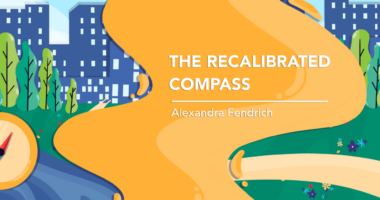Ankylosing Spondylitis Is Not Your Fault

Some people just don’t “get” chronic illness, and they can be pretty cruel about it — or thoughtless, at the very least. It’s hard when people don’t understand what it’s like for those with ankylosing spondylitis (AS) to live with daily pain and the pressures of financing medication, being unable to get out of bed, and not having enough energy to simply get through the day’s work.
I’ve heard people say things such as, “Maybe you should be more careful about how you eat,” or “Do you meditate? Sometimes clearing your energy can be helpful.” These statements have made me really angry at times.
Half of my brain knows they usually have good intentions and don’t mean to annoy me. The other half? Well, it’s sick of being told to meditate or eat better — as if the onus of my disease is on me. (It’s genetic, folks! It would be triggered whether I eat late-night pizza or not.) As if I hadn’t done the cursory research to find holistic treatments and management strategies.
Sometimes it’s just about unsolicited advice being reductive: reductive of your experience as a patient, reductive of your years of suffering and searching for proper treatments, and reductive of human emotion.
You could say, “I’m so sorry you’re going through this. Is there some way I can help?” But launching into an advice column of suggestions we’ve definitely already heard is just not helpful. If you’re in pain every day, there’s a chance you’ve heard of meditation and yoga, am I right?
Let me get back on track. When we talk about chronic illness — everything from diabetes to arthritis — there’s this deeper, maybe quieter, maybe less conscious part of ourselves that wants to control it.
We want to know that we have some agency over what happens to our bodies. But for many of these diseases, genetics are at play. Research shows diseases like AS can also be triggered by trauma, bacteria, and other issues. That means many of us can do everything “right” and still get sick and have flare-ups.
So, no — skipping yoga last week isn’t making you worse. Eating that cake doesn’t mean you deserve AS. Not working out when you were younger didn’t trigger AS. There are plenty of amazing holistic ways to support your health and give yourself a fighting chance pre- and post-diagnosis, but the fault is not yours. Human bodies are fallible and the wild, unpredictable fabric of humanity is sometimes beyond our control.
Take care of yourself, but please don’t blame yourself. When we live with these chronic diseases, it can be really tempting to try and conquer and control the disease and the emotions that come with it. It’s OK to feel angry, alone, and frustrated. It’s OK to grieve your old self. But it’s not worth it to expend energy pointing fingers at yourself.
And to anyone who thinks that chronically ill people are to blame, I ask you: What benefit do you receive from victim-blaming? Can you find a way to support someone and help them find peace and relief instead?
***
Note: Ankylosing Spondylitis News is strictly a news and information website about the disease. It does not provide medical advice, diagnosis, or treatment. This content is not intended to be a substitute for professional medical advice, diagnosis, or treatment. Always seek the advice of your physician or other qualified health provider with any questions you may have regarding a medical condition. Never disregard professional medical advice or delay in seeking it because of something you have read on this website. The opinions expressed in this column are not those of Ankylosing Spondylitis News, or its parent company, Bionews, and are intended to spark discussion about issues pertaining to ankylosing spondylitis.







Jeff Anthony
Great article, most true of some people, Well meaning but just don’t understand What AS Is or does to one’s body.
Kritika
Thank you so much for this article. I so needed to read this. People are mostly concerned but their 'helpful' comments can really hurt sometimes. I have got my share of 'You have not been stretching as much these days' if I have had a flare up. And it can be pretty hard to deal with the pain and the 'accusation' together.
Sharon Hankinson
This really brought home to me about my AS and the struggles I am having with it. I have had AS for 25 years of my life and every day, every flare up, mood swings are different. Please carry in with these columns as it does help us.